
Gwalior: The Historical Heartbeat of India
Gwalior, a city steeped in history and culture, is one of India's most fascinating destinations. Nestled in the heart of Madhya Pradesh, Gwalior is renowned for its magnificent forts, palaces, and temples that tell tales of its glorious past. The city's crowning jewel is the Gwalior Fort, often referred to as 'The Gibraltar of India', which stands majestically on a rocky hill. This ancient structure offers panoramic views of the city and houses several historic landmarks within its walls, including the Man Singh Palace and the Sas Bahu Temples. A visit to Gwalior is incomplete without exploring the Jai Vilas Palace, an opulent structure that is part museum and part royal residence. The museum showcases an impressive collection of artifacts, including a silver train that once served drinks during royal banquets. The palace's grandeur is a testament to the city's royal heritage and offers a glimpse into the luxurious lifestyle of the Scindia dynasty. For those interested in music and arts, Gwalior holds a special place as it is the birthplace of the great Indian musician Tansen. The Tansen Music Festival, held annually, attracts classical music enthusiasts from around the world. The city's vibrant bazaars, such as Sarafa Bazaar and Patankar Bazaar, are perfect for experiencing local life and shopping for souvenirs like Chanderi sarees and handcrafted artifacts. Gwalior's culinary delights, including traditional sweets like Morena gajak and poha, are sure to tantalize your taste buds.
Local tips in Gwalior
- Visit Gwalior Fort early in the morning or late in the afternoon to avoid the midday heat and enjoy the best light for photography.
- Purchase a combined entry ticket for Gwalior Fort to save on entrance fees to multiple attractions within the fort complex.
- Attend the Tansen Music Festival if visiting in December to experience traditional Indian classical music at its finest.
- Hire a local guide for a more informative tour of historical sites; their stories and insights add depth to the experience.
- Try local street food but ensure it's from a clean and reputable vendor to avoid any health issues.
Gwalior: The Historical Heartbeat of India
Gwalior, a city steeped in history and culture, is one of India's most fascinating destinations. Nestled in the heart of Madhya Pradesh, Gwalior is renowned for its magnificent forts, palaces, and temples that tell tales of its glorious past. The city's crowning jewel is the Gwalior Fort, often referred to as 'The Gibraltar of India', which stands majestically on a rocky hill. This ancient structure offers panoramic views of the city and houses several historic landmarks within its walls, including the Man Singh Palace and the Sas Bahu Temples. A visit to Gwalior is incomplete without exploring the Jai Vilas Palace, an opulent structure that is part museum and part royal residence. The museum showcases an impressive collection of artifacts, including a silver train that once served drinks during royal banquets. The palace's grandeur is a testament to the city's royal heritage and offers a glimpse into the luxurious lifestyle of the Scindia dynasty. For those interested in music and arts, Gwalior holds a special place as it is the birthplace of the great Indian musician Tansen. The Tansen Music Festival, held annually, attracts classical music enthusiasts from around the world. The city's vibrant bazaars, such as Sarafa Bazaar and Patankar Bazaar, are perfect for experiencing local life and shopping for souvenirs like Chanderi sarees and handcrafted artifacts. Gwalior's culinary delights, including traditional sweets like Morena gajak and poha, are sure to tantalize your taste buds.
When is the best time to go to Gwalior?
Iconic landmarks you can’t miss
Gwalior Fort
Explore Gwalior Fort, a stunning historical fortress in Madhya Pradesh, showcasing India's architectural brilliance and rich history.
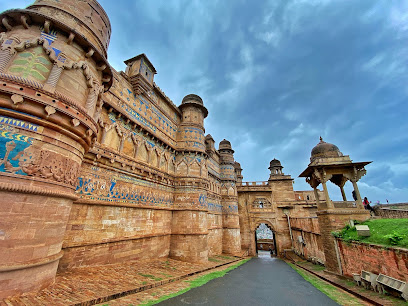
Gwalior Zoo
Explore Gwalior Zoo, a beautiful urban wildlife sanctuary offering encounters with diverse species and a commitment to conservation in Gwalior, India.
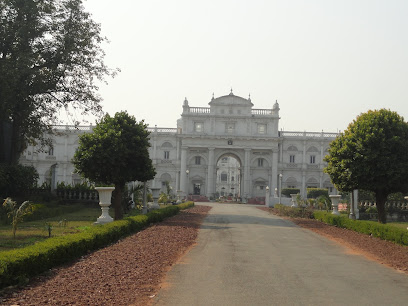
Surya Mandir Gwalior
Explore the exquisite Surya Mandir in Gwalior, a stunning Hindu temple that offers a glimpse into India's rich spiritual and architectural heritage.
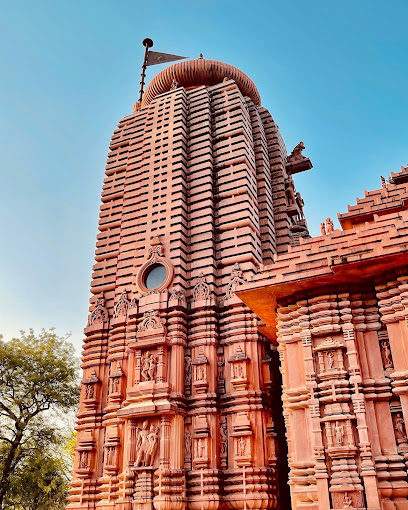
HH Maharaja Sir Jiwajirao Scindia Museum
Explore the rich royal heritage of Gwalior at the HH Maharaja Sir Jiwajirao Scindia Museum, showcasing opulent artifacts and historical treasures.
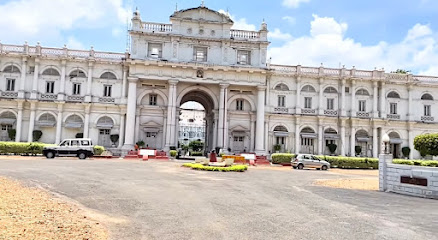
Tomb of Tansen
Explore the Tomb of Tansen in Gwalior, a historical site celebrating India's musical heritage amidst stunning Mughal architecture.
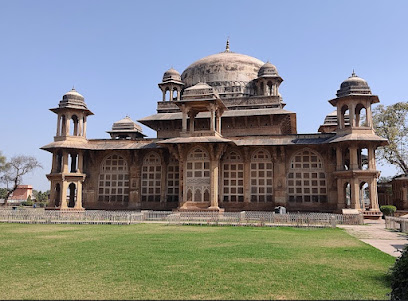
Gurudwara Data Bandi Chhor Sahib
Explore the spiritual depths of Gurudwara Data Bandi Chhor Sahib, a historic site in Gwalior celebrating Sikh heritage and community spirit.
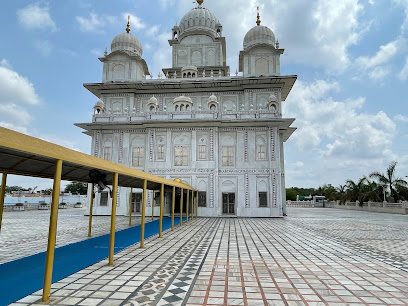
TIGHRA DAM
Explore the natural beauty and recreational activities at Tighra Dam, a serene escape near Gwalior, Madhya Pradesh.
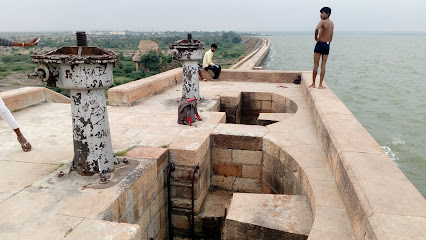
Taj Usha Kiran Palace, Gwalior
Discover the exquisite Taj Usha Kiran Palace in Gwalior, where luxury meets history in a picturesque setting filled with lush gardens and royal charm.
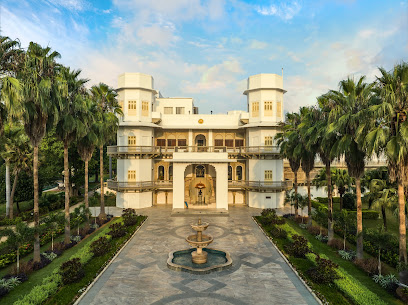
Saas Bahu twin temples
Explore the breathtaking Saas Bahu Twin Temples in Gwalior, where intricate architecture meets rich cultural heritage in a serene spiritual setting.
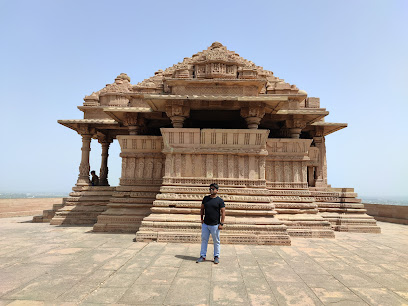
Italian Garden
Experience the enchanting beauty of the Italian Garden in Gwalior, a serene escape adorned with stunning architecture and vibrant landscapes.
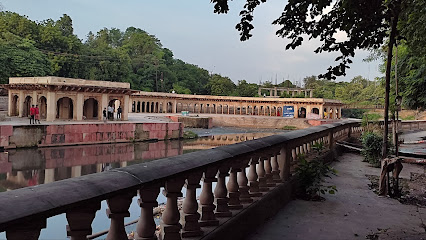
SPLASH THE SUN CITY
Dive into fun at Splash The Sun City in Gwalior, where thrilling rides and refreshing water attractions await family adventurers and fun seekers alike.
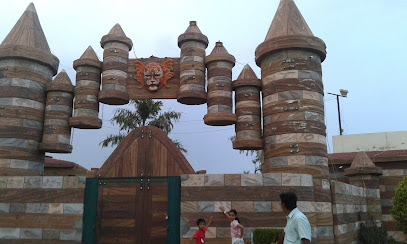
Shri Koteshwar Mahadev Temple - Gwalior District, Madhya Pradesh, India
Experience the spiritual tranquility and architectural beauty of Shri Koteshwar Mahadev Temple in Gwalior, a must-visit Hindu temple and historical landmark.
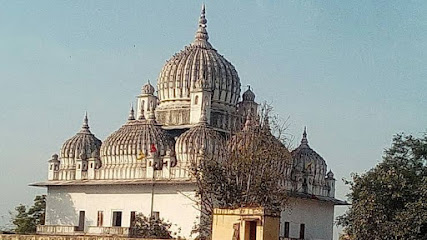
Jai Vilas Palace
Explore the grandeur of Jai Vilas Palace, a historic museum showcasing the opulence of the Scindia dynasty in Gwalior, Madhya Pradesh.
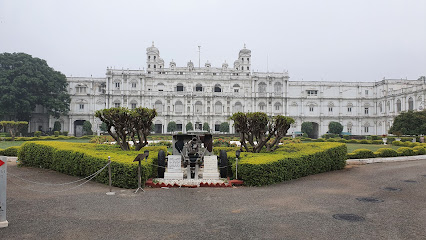
Baijataal
Discover the tranquil beauty of Baijataal in Gwalior, where nature meets culture in a perfect blend of serenity and history.
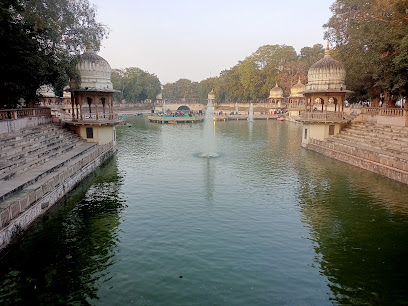
The Rangmahal Garden
Explore The Rangmahal Garden, a serene wedding venue and garden in Gwalior, perfect for leisurely strolls and picturesque moments.
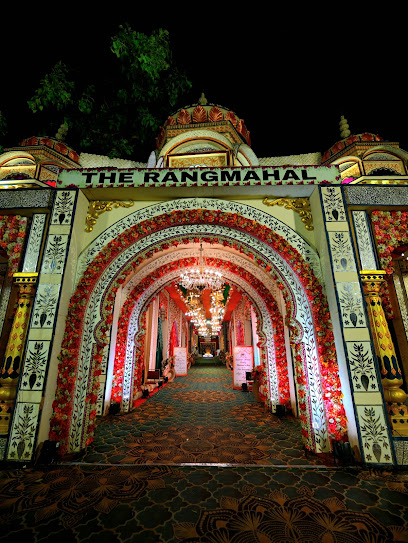
Unmissable attractions to see
Gwalior Fort
Explore the majestic Gwalior Fort, a historic hilltop fortress with stunning architecture and panoramic city views.
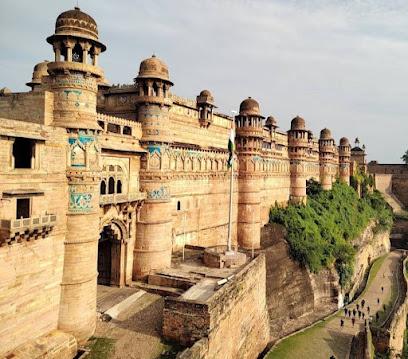
Sun Temple Gwalior
A modern architectural marvel inspired by the Konark Sun Temple, offering a serene and spiritual experience in the heart of Gwalior.
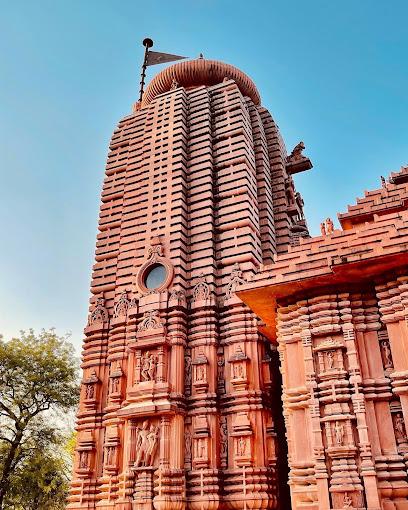
HH Maharaja Sir Jiwajirao Scindia Museum
Explore the opulent lifestyle and rich heritage of the Scindia dynasty at Gwalior's magnificent Jai Vilas Palace Museum.
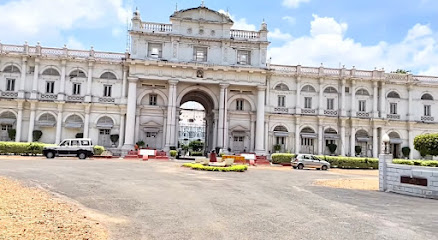
Tomb of Tansen
Pay homage to the maestro at the Tomb of Tansen in Gwalior, a serene monument to India's rich musical heritage.
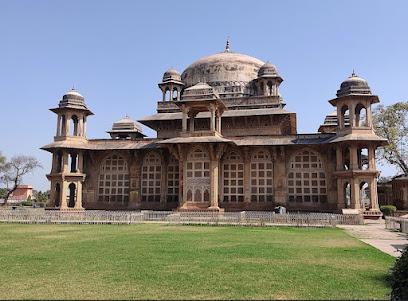
TIGHRA DAM
Escape to the tranquil Tighra Dam near Gwalior for boating, scenic beauty, and a refreshing break from city life. A perfect spot for nature lovers!
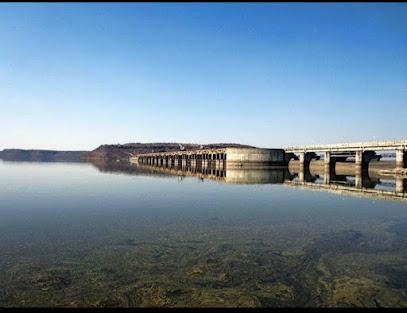
Sahastrbahu Twin Temples
Explore the ancient Sahastrabahu Twin Temples at Gwalior Fort, showcasing stunning 11th-century Nagara architecture and intricate carvings.
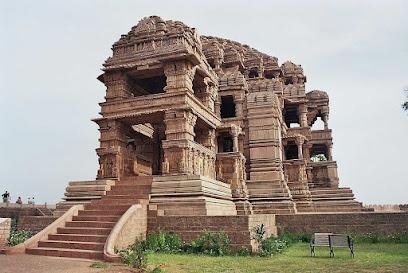
Sai Baba Mandir
Experience serenity at Gwalior's Sai Baba Mandir, a peaceful sanctuary dedicated to Sai Baba, offering solace and spiritual reflection.
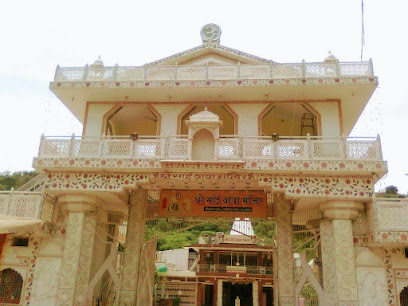
Italian Garden
Discover Gwalior's hidden gem: a serene Italian-inspired garden with lush landscapes, musical fountains, and tranquil escapes.
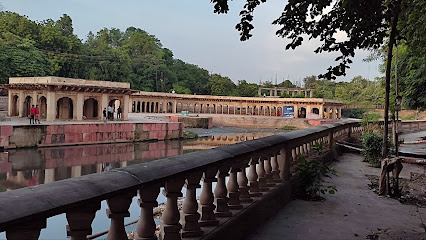
SPLASH THE SUN CITY
Beat the heat at Gwalior's top water park! Enjoy thrilling rides & slides for a fun-filled day with family & friends. Perfect for all ages!
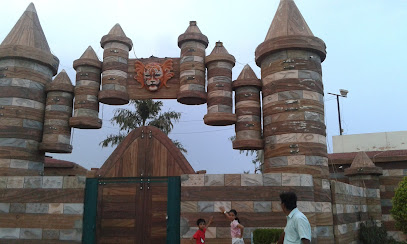
Jai Vilas Palace
Explore the opulent Jai Vilas Palace in Gwalior, a majestic blend of European architecture and Maratha royal heritage.
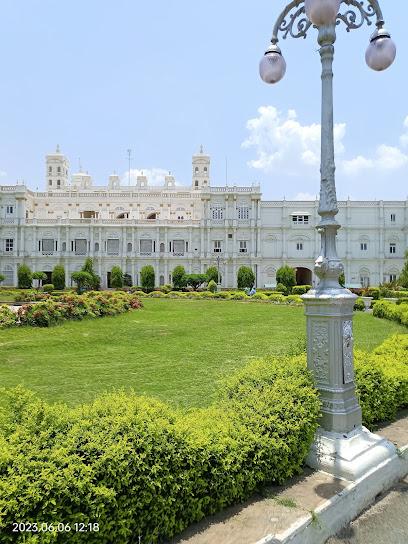
Baijataal
Experience the serene beauty and rich heritage of Baijataal, a must-visit tourist attraction in Gwalior, Madhya Pradesh, India.
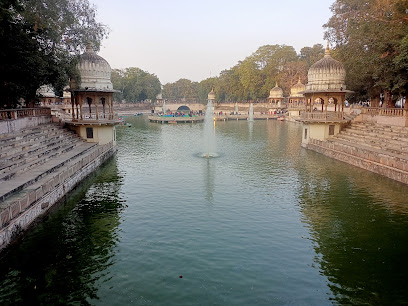
Gujari Mahal
Explore the Gujari Mahal Museum in Gwalior Fort: A love story etched in stone, showcasing centuries of art, artifacts, and historical treasures.
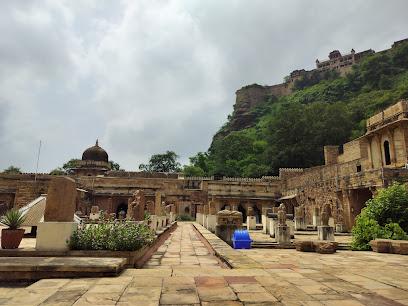
Tomb of Muhammad Ghaus
Explore the serene Tomb of Muhammad Ghaus in Gwalior, a masterpiece of Mughal architecture and a tribute to a revered Sufi saint.
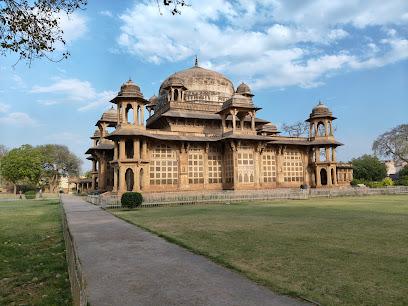
Sheetla Mata Temple
Discover spiritual solace at Gwalior's Sheetla Mata Temple, a historic shrine dedicated to the revered Goddess Sheetla.
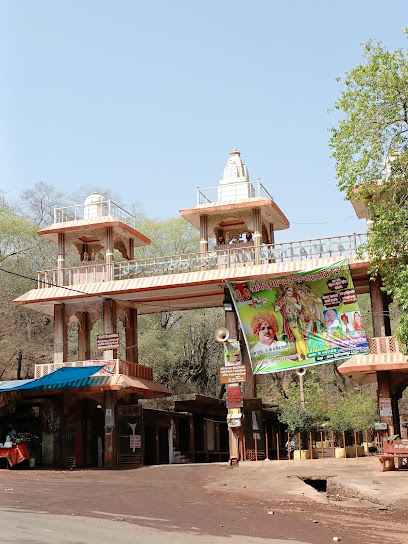
Gopachal Jain Parvat
Explore ancient Jain artistry at Gopachal Parvat, a hilltop haven of rock-cut sculptures and spiritual serenity near Gwalior Fort.
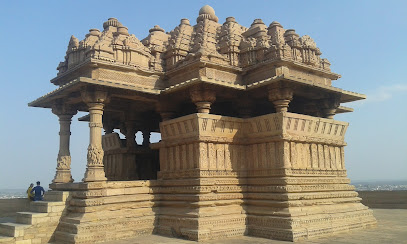
Essential places to dine
Param Food Complex (Pure Veg)
Experience an exquisite blend of fast food and authentic South Asian cuisine at Param Food Complex in Gwalior.
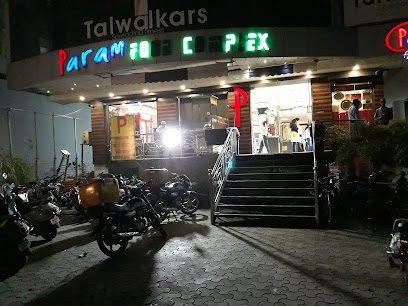
Indian Coffee House
Discover authentic Indian flavors at the iconic Indian Coffee House in Gwalior – where tradition meets taste in every cup.
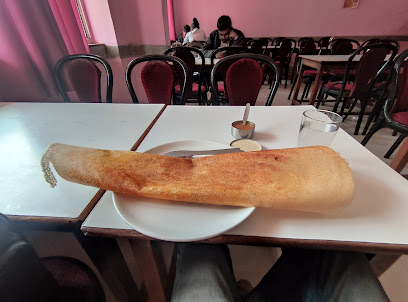
Kwality Restaurant
Discover the authentic taste of India at Kwality Restaurant in Gwalior – where exquisite biryani meets fine dining.
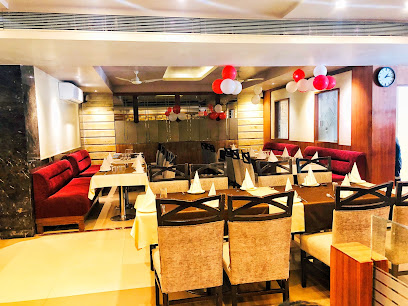
Param Food Complex
Experience Gwalior's vibrant culinary scene at Param Food Complex, offering mouthwatering vegetarian dishes and irresistible bakery delights.
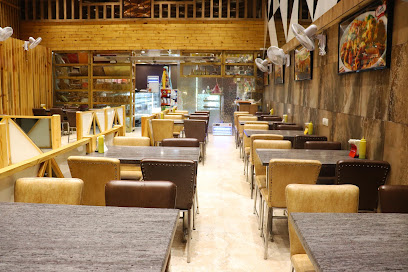
Taste Of Punjab
Experience the authentic taste of Punjabi cuisine at Taste Of Punjab in Gwalior – a vegetarian haven filled with flavor!
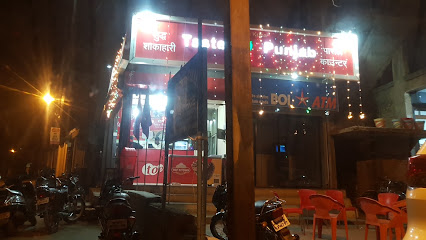
Captain's Cafe
Experience exquisite flavors and stunning views at Captain's Cafe in Gwalior – where every meal is a feast for the senses.
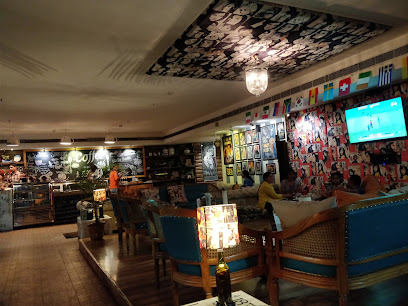
Alfanzo Restaurant
Discover Gwalior's finest dining experience at Alfanzo Restaurant with delicious cuisines and delightful desserts for every palate.
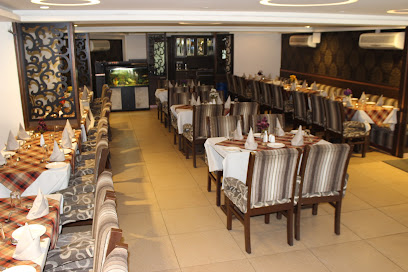
INDIAN COFFEE HOUSE & RESTAURANT GWALIOR
Savor Authentic Indian Cuisine in a Historic Setting at Indian Coffee House & Restaurant Gwalior.
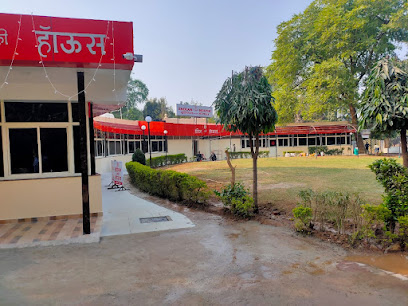
Panchavati Gaurav
Experience authentic Rajasthani vegetarian cuisine at Panchavati Gaurav in Gwalior's City Center.
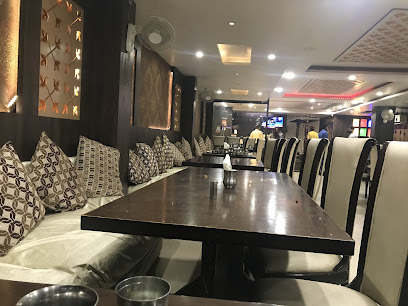
Raj Bhoj- Veg Restaurant in Gwalior
Experience authentic vegetarian cuisine at Raj Bhoj in Gwalior - where tradition meets taste in every delightful dish.
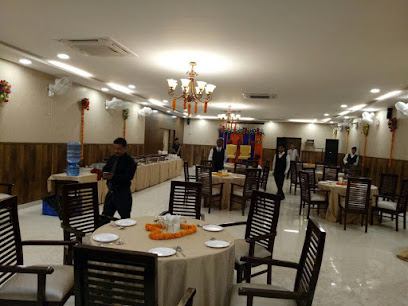
Molecule Gwalior
Experience the fusion of flavors at Molecule Gwalior, where culinary innovation meets traditional Indian hospitality.
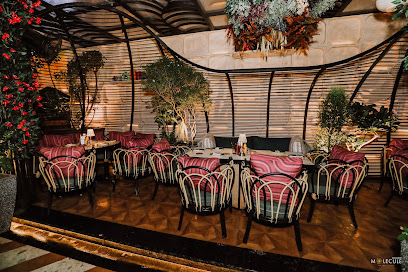
Bamboo Restaurant
Discover authentic vegetarian cuisine at Bamboo Restaurant in Gwalior - where every meal tells a story.
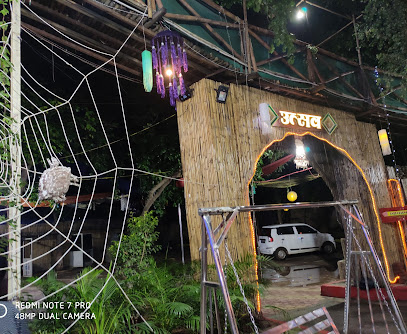
Moti Mahal Deluxe
Experience the essence of Indian cuisine at Moti Mahal Deluxe in Gwalior - where authentic flavors meet warm hospitality.
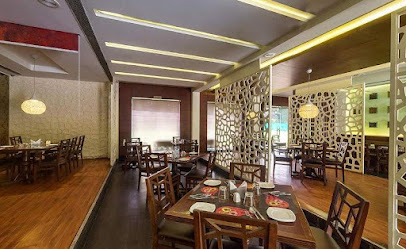
Swad The Taste
Experience authentic Indian vegetarian cuisine at Swad The Taste in Gwalior – where tradition meets modern fast food.
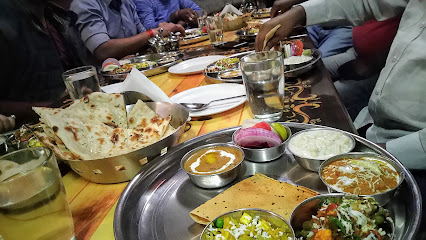
Delight Hotel and Restaurant
Experience exquisite vegetarian cuisine at Delight Hotel and Restaurant in Gwalior - where tradition meets taste.
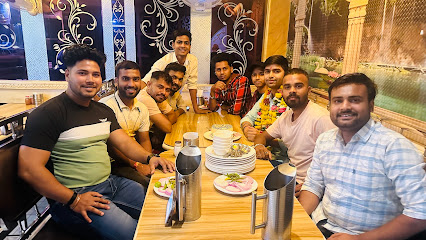
Markets, malls and hidden boutiques
Dindayal City Mall
Discover shopping, dining, and entertainment at Dindayal City Mall in Gwalior, the ultimate destination for a fun-filled day.
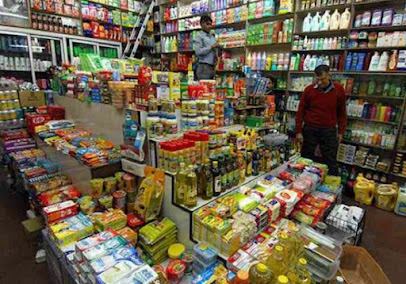
DB City Mall
Explore DB City Mall in Gwalior: Your ultimate shopping destination featuring diverse brands, dining options, and entertainment for an unforgettable experience.
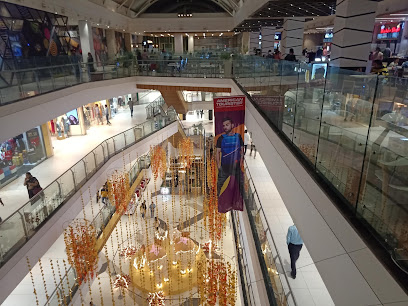
Croma - City Center
Explore cutting-edge gadgets and reliable appliances at Croma City Center, your ultimate electronics haven in Gwalior.
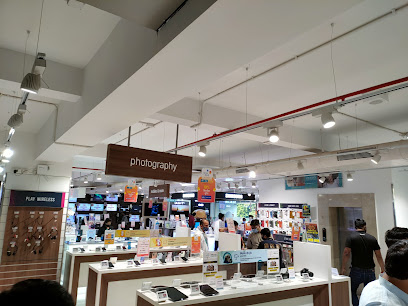
Bada market
Discover the vibrant Bada Market in Gwalior, where local culture, shopping, and delicious street food come together in a lively atmosphere.
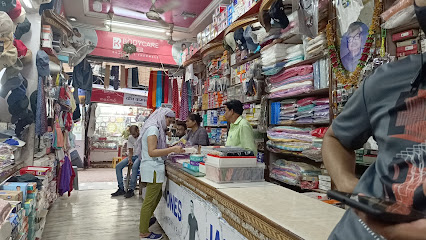
Vishal Mega Mart
Explore Vishal Mega Mart in Gwalior for an extensive range of clothing and accessories at great prices, blending local charm with modern shopping convenience.
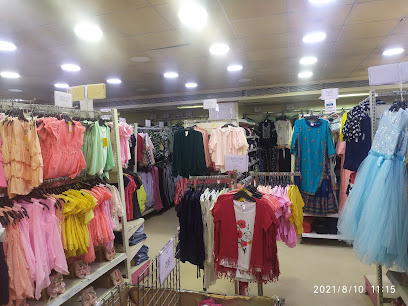
V-Mart - Gwalior-Lashkar
Discover the vibrant shopping experience at V-Mart Gwalior-Lashkar, where fashion meets affordability in a welcoming atmosphere.
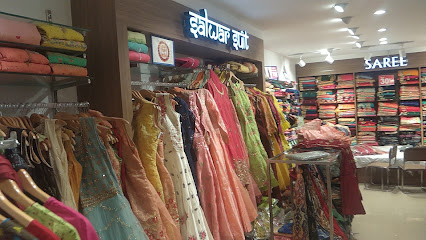
The Central Mall
Explore The Central Mall in Gwalior for a vibrant shopping experience with diverse brands, dining, and entertainment options.
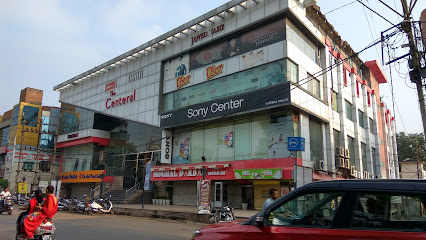
Rawaldas True Mart
Experience the essence of Gwalior at Rawaldas True Mart, your go-to supermarket for local flavors and everyday essentials.
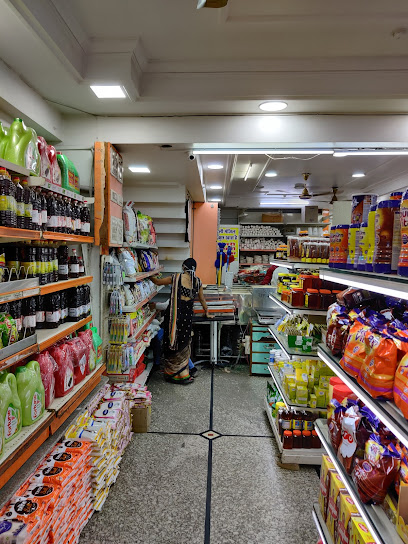
Fastrack store
Shop trendy watches, stylish bags, and exquisite perfumes at Fastrack in Gwalior, the ultimate destination for fashion enthusiasts.

Big Shop
Discover the vibrant shopping experience at Big Shop in Gwalior, where local culture meets modern retail.
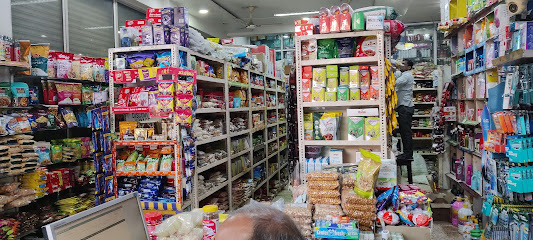
Shoppers Stop Gwalior
Discover the ultimate shopping experience at Shoppers Stop Gwalior, where fashion meets convenience in a vibrant department store setting.
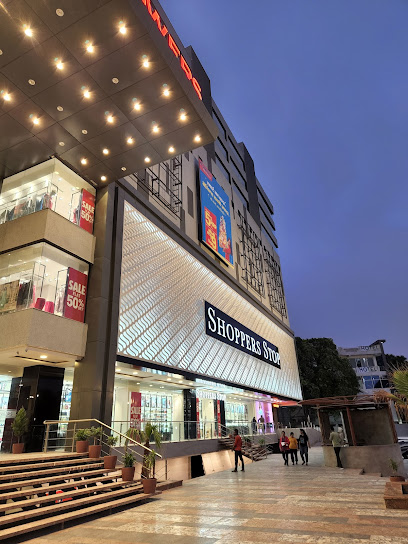
Give & Take
Discover unique clothing treasures at Give & Take in Gwalior - a fusion of modern and traditional Indian fashion awaits you.
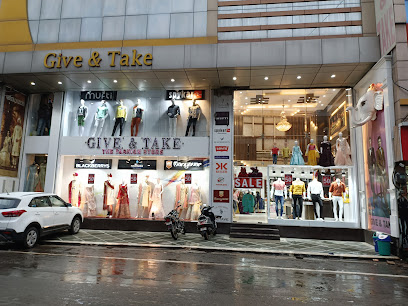
Awatram and Sons
Explore the vibrant styles and quality offerings at Awatram and Sons, Gwalior's premier clothing store for tourists and locals alike.
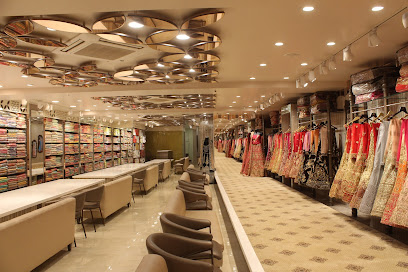
C-Sky Shopping mall
Explore the vibrant C-Sky Shopping Mall in Gwalior, the ultimate destination for shopping, dining, and entertainment, reflecting the local culture in every corner.
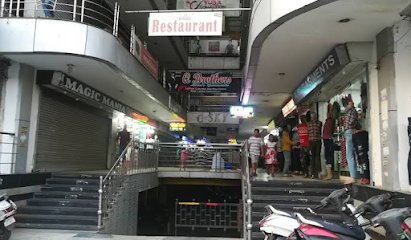
Unique collection in gwalior pooja jain best collection of bridal lehenga and Jwellery for rent
Explore Gwalior's finest bridal shop for elegant lehengas and exquisite jewelry, perfect for your wedding day.
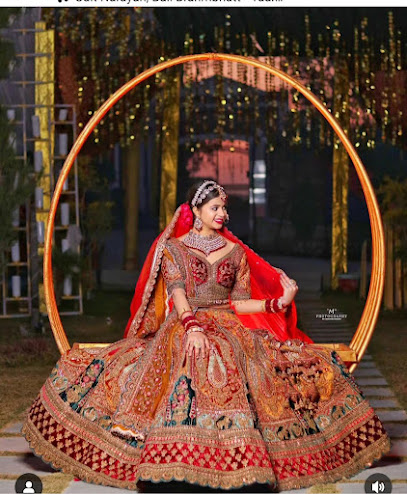
Essential bars & hidden hideouts
Molecule Gwalior
Experience the vibrant culinary scene at Molecule Gwalior, where modern flavors meet traditional Indian cuisine in an inviting atmosphere.
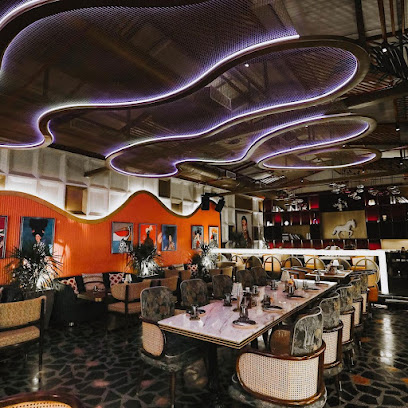
Kabooz Cafe & Lounge Gwalior
Discover the vibrant flavors of Gwalior at Kabooz Cafe & Lounge, where fast food meets a relaxed lounge atmosphere.
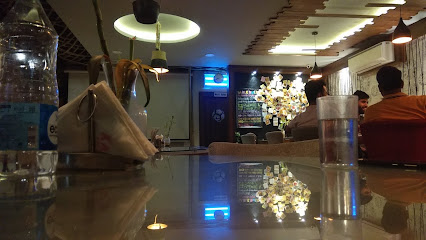
The Brown Room
Experience luxury and sophistication at The Brown Room, Gwalior's premier lounge for exquisite dining and vibrant nightlife.
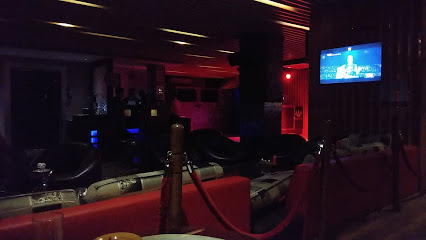
Blue Lounge (Family restaurant & pub)
Experience the perfect blend of family dining and pub vibes at Blue Lounge in Gwalior's Dindayal City Mall.
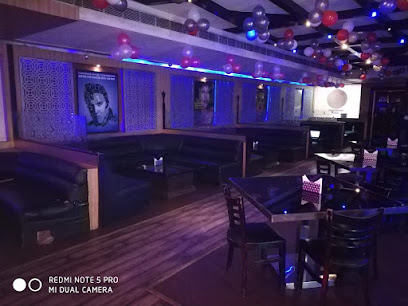
MEDUSA - Nightclub & Lounge
Dive into the electric nightlife at MEDUSA - Nightclub & Lounge in Gwalior, where music, drinks, and vibrant atmosphere come together for an unforgettable experience.
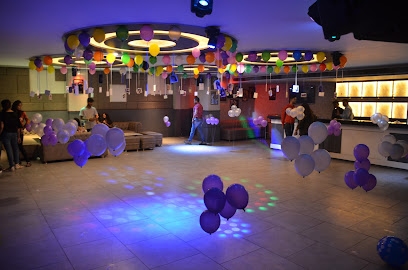
The sky club and cafe
Discover The Sky Club and Cafe, a rooftop pub in Gwalior offering stunning views, lively ambiance, and a delightful menu of drinks and snacks.
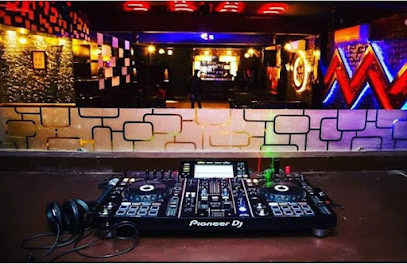
Classico Royale Restaurant and Bar
Experience a delightful culinary adventure at Classico Royale Restaurant and Bar in Gwalior, where exquisite flavors meet vibrant nightlife.
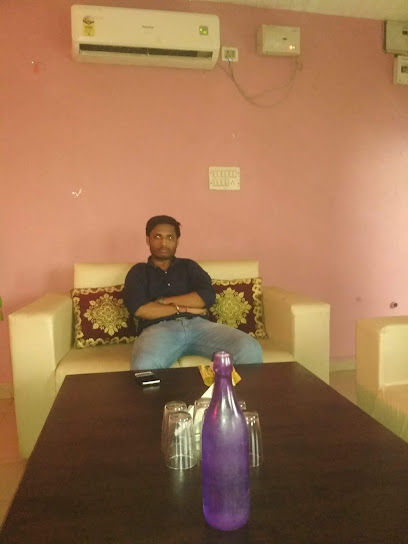
Maharaja Bar & Restaurant
Discover the lively fusion of bar and dining at Maharaja Bar & Restaurant in Gwalior, where culinary delights meet vibrant social scenes.
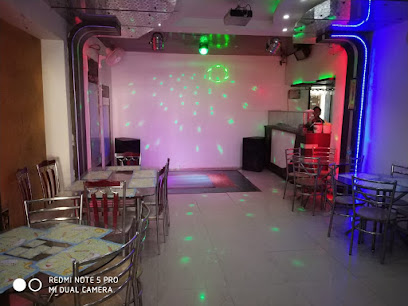
Hotel Ashish Palace Bar and Restaurant
Experience the rich flavors of Gwalior at Hotel Ashish Palace Bar and Restaurant, where great food meets vibrant ambiance.
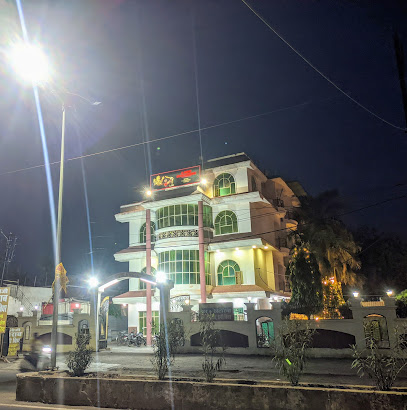
Blue Star Beer Bar
Experience the vibrant nightlife of Gwalior at Blue Star Beer Bar, where local brews and a lively atmosphere await every visitor.
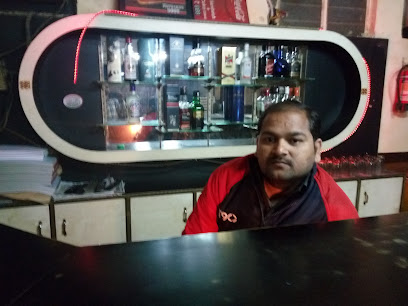
Maya Bar
Experience the vibrant nightlife of Gwalior at Maya Bar, where diverse drinks and a lively atmosphere await you.
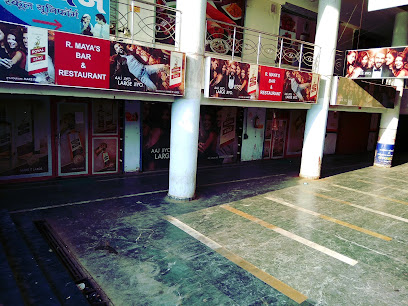
Mezbaan Bar and Restaurant
Experience the vibrant nightlife of Gwalior at Mezbaan Bar and Restaurant, offering a diverse menu and inviting ambiance for all visitors.
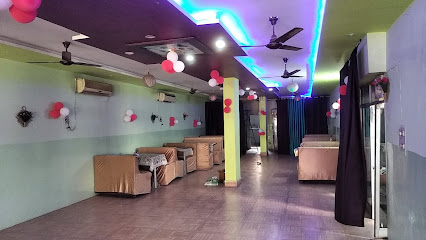
VYB Bar & Lounge
Experience the vibrant nightlife at VYB Bar & Lounge in Gwalior, where delicious drinks and a lively atmosphere await every visitor.
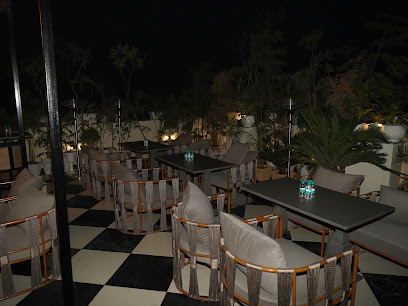
SaFArI bar
Experience the vibrant nightlife of Gwalior at SaFArI Bar, where great drinks and a lively atmosphere await every visitor.
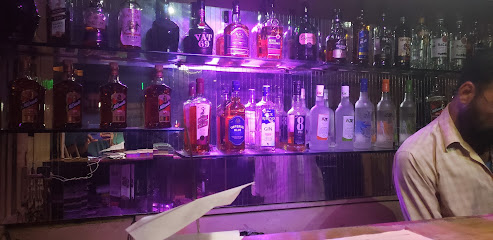
Local Phrases
-
- Helloनमस्कार
[namaskar] - Goodbyeअलविदा
[alvida] - Yesहाँ
[haan] - Noनहीं
[nahin] - Please/You're welcomeकृपया/स्वागत है
[krupaya/swagat hai] - Thank youधन्यवाद
[dhanyavad] - Excuse me/Sorryक्षमा करें/माफ़ कीजिए
[kshama karein/maaf kijiye] - How are you?आप कैसे हैं?
[aap kaise hain?] - Fine. And you?ठीक हूँ। और आप?
[thik hoon. aur aap?] - Do you speak English?क्या आप अंग्रेज़ी बोलते हैं?
[kya aap angrezi bolte hain?] - I don't understandमैं समझ नहीं पाया
[main samajh nahin paya]
- Helloनमस्कार
-
- I'd like to see the menu, pleaseकृपया मेनू दिखाएं
[krupaya menu dikhayein] - I don't eat meatमैं मांस नहीं खाता
[main maans nahin khata] - Cheers!चियर्स!
[cheers!] - I would like to pay, pleaseकृपया मैं भुगतान करना चाहूँ
[krupaya main bhugtan karna chaahoon]
- I'd like to see the menu, pleaseकृपया मेनू दिखाएं
-
- Help!बचाओ!
[bachao!] - Go away!चले जाओ!
[chale jao!] - Call the Police!पुलिस को बुलाओ!
[police ko bulaao!] - Call a doctor!डॉक्टर को बुलाओ!
[doctor ko bulaao!] - I'm lostमैं खो गया/गई हूँ
[main kho gaya/gayi hoon] - I'm illमुझे बीमारी है
[mujhe bimari hai]
- Help!बचाओ!
-
- I'd like to buy...मैं खरीदना चाहूँगा/गी
[main khareedna chaahunga/chaahoongi] - I'm just lookingमैं सिर्फ देख रहा/रही हूँ
[main sirf dekh raha/rahi hoon] - How much is it?यह कितने का है?
[yah kitne ka hai?] - That's too expensiveयह बहुत महंगा है
[yah bahut mahnga hai] - Can you lower the price?क्या आप कीमत कम कर सकते हैं?
[kya aap keemat kam kar sakte hain?]
- I'd like to buy...मैं खरीदना चाहूँगा/गी
-
- What time is it?समय क्या है?
[samay kya hai?] - It's one o'clockएक बजे हैं
[ek baje hain] - Half past (10)दस बजे बीस मिनट
[das baje bees minute] - Morningसुबह
[subah] - Afternoonदोपहर
[dopahar] - Eveningशाम
[shaam] - Yesterdayकल
[kal] - Todayआज
[aaj] - Tomorrowकल
[kal] - 1एक
[ek] - 2दो
[do] - 3तीन
[teen] - 4चार
[chaar] - 5पाँच
[paanch] - 6छह
[chhah] - 7सात
[saat] - 8आठ
[aath] - 9नौ
[nau] - 10दस
[das]
- What time is it?समय क्या है?
-
- Where's a/the...?कहाँ है..?
[kahaan hai..?] - What's the address?पता क्या है?
[pata kya hai?] - Can you show me (on the map)?क्या आप मुझे दिखा सकते हैं (नक्शे पर)?
[kya aap mujhe dikha sakte hain (naksha par)?] - When's the next (bus)?अगली (बस) कब है?
[agli (bas) kab hai?] - A ticket (to ....)एक टिकट (के लिए ....)
[ek ticket (ke liye ....)]
- Where's a/the...?कहाँ है..?
History of Gwalior
-
Gwalior traces its origins back to the 8th century when it was founded by King Suraj Sen. According to legend, the king was cured of leprosy by a sage named Gwalipa, after whom the city was named. The city’s strategic location made it a significant military outpost and trade hub in ancient India.
-
Often termed as the 'Pearl among fortresses in India,' Gwalior Fort is an architectural marvel that stands on a rocky hill called Gopachal. Built in the 8th century, the fort has witnessed numerous battles and has been ruled by several dynasties, including the Pratiharas, Tomars, Mughals, and Marathas. The fort's intricate carvings, palaces, and temples narrate the story of its rich and turbulent past.
-
The Tomar dynasty, particularly during the reign of Raja Man Singh Tomar in the late 15th and early 16th centuries, saw Gwalior reach the zenith of its cultural and architectural achievements. Man Singh Tomar was a patron of art and music, and his most notable contribution is the Man Mandir Palace, an exquisite example of early Hindu architecture.
-
In 1526, the Mughal Emperor Babur captured Gwalior, marking the beginning of Mughal rule. The fort became an important stronghold for the Mughals. Emperor Akbar considered Gwalior Fort as the 'key to Hindustan.' The Mughals used the fort as a prison for political prisoners, and it played a crucial role in their military campaigns.
-
In the 18th century, Gwalior came under the control of the Marathas. The Scindia dynasty, one of the prominent Maratha clans, established their rule over Gwalior in 1761. Under their reign, the city flourished as a center of culture and education. The Scindia School, founded in 1897, and the Jai Vilas Palace, an opulent 19th-century palace, are testaments to their legacy.
-
Gwalior played a significant role during the Indian Rebellion of 1857 against British rule. The city was a key battleground where Rani Lakshmibai of Jhansi, a leading figure in the uprising, fought her last battle. The rebellion marked a pivotal moment in the history of Indian resistance against colonial rule.
-
After India gained independence in 1947, Gwalior became part of the state of Madhya Pradesh. The city continued to grow as an important cultural and educational hub. Institutions such as the Indian Institute of Information Technology and Management (IIITM) and the Laxmibai National Institute of Physical Education contribute to its modern identity.
Gwalior Essentials
-
Gwalior is well-connected by air, rail, and road. The nearest airport is Rajmata Vijaya Raje Scindia Air Terminal, which is about 10 km from the city center. Regular flights connect Gwalior to major cities like Delhi and Mumbai. Gwalior Junction is a major railway station with frequent trains to and from cities like Delhi, Agra, and Bhopal. National highways NH 44 and NH 27 provide excellent road connectivity; buses and taxis are available for road travel.
-
Local transportation in Gwalior includes auto-rickshaws, cycle-rickshaws, and taxis. Auto-rickshaws are the most common and economical means of transport. For more comfort, you can opt for app-based taxi services like Ola and Uber. Public buses operated by the Madhya Pradesh Transport Department also ply within the city. For exploring the nearby areas, renting a car is a convenient option.
-
The official currency is the Indian Rupee (INR). Credit and debit cards are widely accepted in hotels, restaurants, and larger shops. However, it's advisable to carry some cash, especially when visiting local markets or smaller establishments. ATMs are plentiful in Gwalior, but it's a good idea to inform your bank about your travel plans to avoid any issues with card transactions.
-
Gwalior is generally a safe city for tourists. However, like any other place, it's important to take standard precautions. Avoid walking alone late at night in poorly lit areas. Phool Bagh and some parts of old Gwalior are known for petty crimes like pickpocketing, so be extra vigilant in these areas. Always keep your belongings secure and be cautious when dealing with strangers.
-
In case of an emergency, dial 112 for immediate assistance. The main hospital is J.A. Hospital, which is well-equipped to handle medical emergencies. Police assistance can be sought by visiting the nearest police station or calling the local police helpline. Pharmacies are available throughout the city for minor health issues. It's highly recommended to have travel insurance that covers medical expenses.
-
Fashion: Do dress conservatively, especially when visiting religious sites. Avoid wearing revealing clothing. Religion: Do show respect for local customs and traditions. Remove your shoes and cover your head when entering temples. Public Transport: Do be polite and offer your seat to elderly passengers. Don't eat or drink on public transport. Greetings: Do greet people with a 'Namaste' or a handshake. Avoid overly familiar gestures. Eating & Drinking: Do try local cuisine and accept food offerings graciously. Don't refuse hospitality, as it is considered impolite.
-
To experience Gwalior like a local, visit the bustling Sarafa Bazaar for traditional handicrafts and street food. Engage with locals who are often eager to share stories about the city's rich history. Don't miss visiting the Gwalior Fort, Sun Temple, and the Scindia Palace. For a unique experience, attend the annual Tansen Music Festival, which celebrates classical music in honor of the legendary musician Tansen.
Trending Landmark in Gwalior
-
Gwalior Fort
-
Gwalior Zoo
-
Surya Mandir Gwalior
-
HH Maharaja Sir Jiwajirao Scindia Museum
-
Tomb of Tansen
-
Gurudwara Data Bandi Chhor Sahib
-
TIGHRA DAM
-
Taj Usha Kiran Palace, Gwalior
-
Saas Bahu twin temples
-
Italian Garden
-
SPLASH THE SUN CITY
-
Shri Koteshwar Mahadev Temple - Gwalior District, Madhya Pradesh, India
-
Jai Vilas Palace
-
Baijataal
-
The Rangmahal Garden
Nearby Cities to Gwalior
-
Things To Do in Agra
-
Things To Do in Ranthambore
-
Things To Do in Kanpur
-
Things To Do in Jaipur
-
Things To Do in Lucknow
-
Things To Do in Delhi
-
Things To Do in Bhopal
-
Things To Do in Pushkar
-
Things To Do in Jabalpur
-
Things To Do in Rishikesh
-
Things To Do in Udaipur
-
Things To Do in Lumbini
-
Things To Do in Varanasi
-
Things To Do in Jodhpur
-
Things To Do in Shimla













